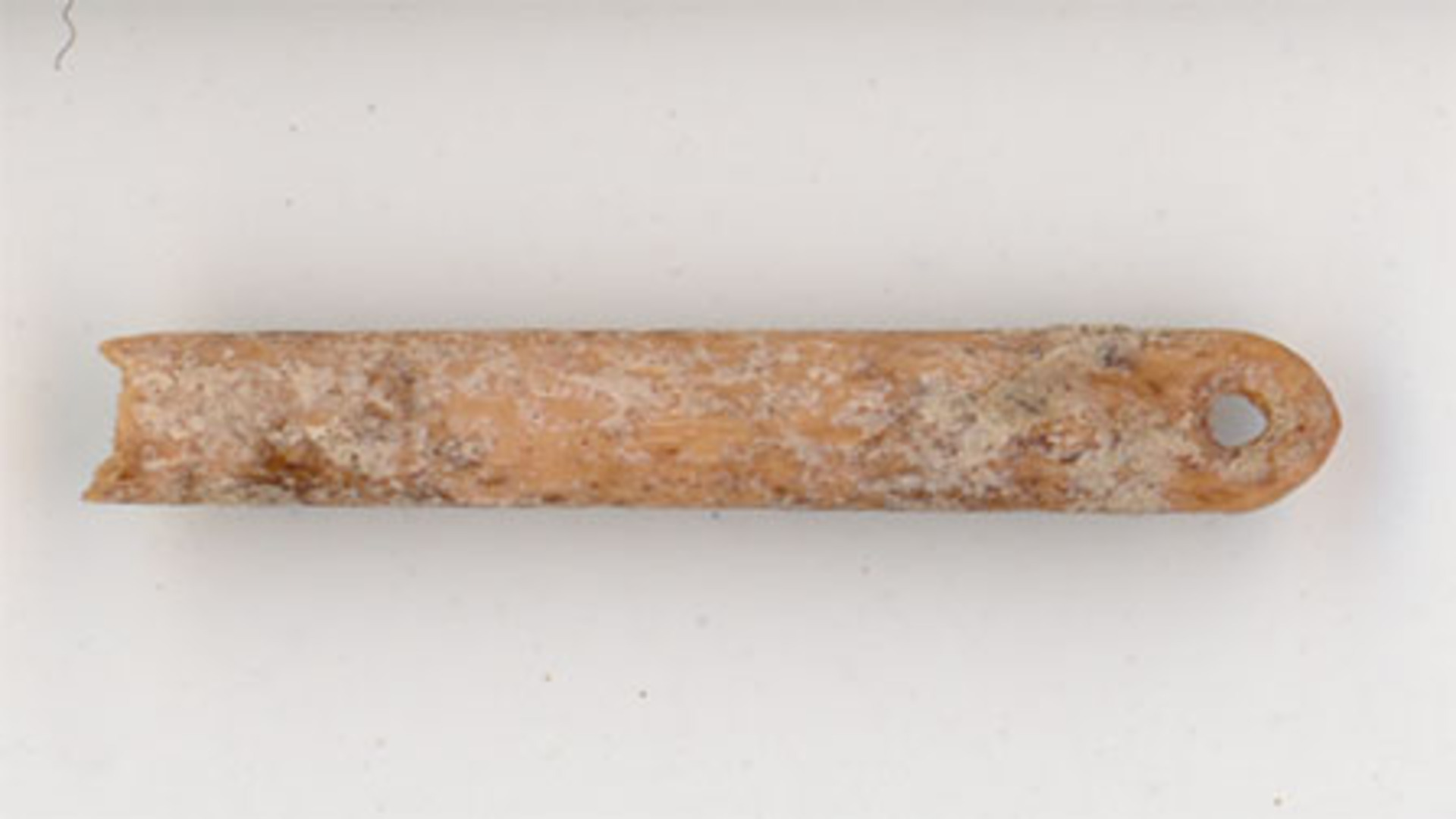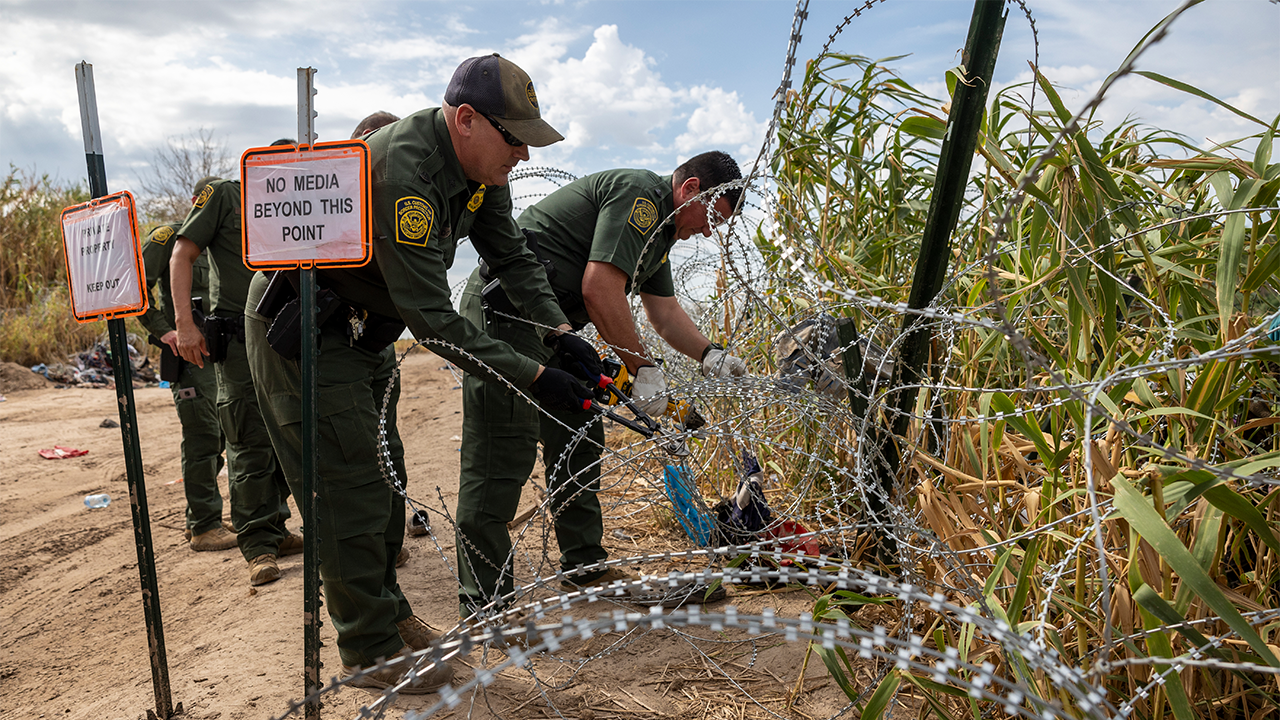Mississippi
A Democratic governor in Mississippi? Here’s how it could happen.

JACKSON, Mississippi — Mississippi isn’t that Republican.
Although Republicans have a monopoly on statewide office and supermajorities in the state legislature, Mississippi is a lighter shade of red than outsiders might think. It has been consistently easy in recent years for Democrats to get up to 45 percent of the vote here, but nearly impossible for them to top 50.
“In Mississippi, if you’re winning by double digits, that’s a real blowout,” said Austin Barbour, a longtime GOP strategist in the state.
Of course, close doesn’t count for much in electoral politics. But that history of close top-of-the-ticket races in the Magnolia State — combined with a compelling Democratic candidate and a not terribly popular Republican incumbent — means that this year’s gubernatorial election has become one of Democrats’ top targets in an odd year.
In 2023, their hope is that Brandon Presley, a longtime elected public service commissioner from the northeast corner of the state with a fondness for Diet Mountain Dew and folksy aphorisms, can somehow break their streak and win the state’s odd-year gubernatorial election. To do so, Presley would have to beat incumbent Gov. Tate Reeves, who has a formidable war chest and a well-oiled political machine, but who is also tarnished by scandal and has one of the lowest approval ratings of any governor in the country.
Presley will also have to motivate the state’s Black voters to turn out, persuade the state’s remaining swing voters to support him, and do absolutely nothing to motivate the Trump base, who voted in record numbers in 2020. If everything goes right as he navigates those dynamics and the state’s convoluted political geography, he’d become the first Democrat to win the governor’s mansion since 1999.
Mississippi politics, explained
Mississippi is both the Blackest and perhaps the most racially polarized state in the United States. Roughly 37 percent of the population is Black, and those Mississippians almost invariably vote for Democrats. In 2020, when Donald Trump won the Magnolia State by a 16-point margin, exit polls showed that 81 percent of white voters supported him, but only 5 percent of Black voters. This divide is shown clearly on the map of the state: Where Black voters cluster, Democrats win. And while racial politics is the primary factor in a state still associated with the civil rights movement’s struggle against Jim Crow, its patchwork political geography also plays an important role in shaping the political landscape.
The white voters in the state that Presley needs to win include both ancestral Democrats who have swung toward the GOP in the Trump era and well-educated establishment Republicans who are appalled by Trump. Even if Mississippi Democrats can successfully woo a significant number of those voters and turn out a significant number of Black voters, a too-lopsided defeat in Republican-leaning areas can still doom them. Mississippi Democrats have to be lucky in all areas of the state; Mississippi Republicans only have to be lucky in one.
“I think enough of your white voters are going to have to say, ‘I think Brandon can do a better job,’” said Ronnie Musgrove, the state’s last Democratic governor. “There’s nothing about him that really scares them. African American voters have got to believe that he can do a better job for all communities.”
Mississippi’s complicated political map, explained
Mississippi’s convoluted political geography exacerbates the challenge Presley faces. He has to overwhelmingly win both rural and urban Black voters while winning enough white voters, not just in prosperous suburbs and booming college towns, but in remote rural enclaves as well.
The state’s Democratic strongholds, which are also the most heavily Black parts of the state, are the Mississippi Delta and the state capital of Jackson. The former is a rural stretch of land nestled between the banks of the Mississippi River and the Yazoo River that includes some of the most heavily African American jurisdictions in the country. It consists of some of the richest farmland in the United States and is populated by people with some of the lowest incomes. Its population is also rapidly shrinking as residents move out for economic opportunity.
Jackson has been troubled in recent years, dealing with a major water crisis that left residents without clean water and a spike in violent crime that has left the city with the highest homicide rate in the country. Although Jackson has prosperous sections with shiny new beer gardens and a Whole Foods, it also has deeply impoverished neighborhoods in the south of the city where ramshackle houses stand on streets without sidewalks and public parks are littered with fallen tree limbs.
The rest of the state is divided up in ways that don’t lend themselves to easy characterization. Perhaps the backbone of the Mississippi GOP is the Gulf Coast, which was one of the first parts of the state to go Republican at a federal level. Gerald Blessey, the former Democratic mayor of Biloxi, described it as “culturally aligned with the stretch of the country from Pensacola, Florida, to Lafayette, Louisiana” more than the rest of the South. It’s far more Catholic than the rest of the state and economically distinct, relying instead on the trinity of tourism, seafood, and military installations as the basis of its economy.
Another core Republican region is the Pine Belt, which separates the coast from the rest of the state. It’s rural, it’s majority white, and it has long rejected the Democratic Party — Forrest County, which includes Hattiesburg, has not voted for the Democratic presidential nominee since 1944.
In contrast, Northeast Mississippi was once a Democratic stronghold but has followed much of the rest of the state in veering Republican. Nestled in Appalachia and one of the whitest regions of the state, it resembles West Virginia politically as much as it does the Gulf Coast.
Then there are the suburbs: Madison and Rankin counties, which surround Jackson, and DeSoto County, just south of Memphis. While Rankin has remained solidly Republican, both Madison and DeSoto have moved toward Democrats in recent years for varying reasons. Madison County, outside Jackson, is the best-educated jurisdiction in the state, and Joe Biden’s performance there in 2020 was the best by a Democratic presidential nominee since Walter Mondale (he still lost by 12 percent). DeSoto County, in suburban Memphis, has seen a surge in population growth as middle-class African Americans have moved south from Memphis. It is an area that has long been detached from the rest of the state as residents watch Memphis television and consume Tennessee-focused media.
Those factors have added up to recent elections like these: In 2018, Mike Espy, the Democratic candidate in a special election for the US Senate, lost by 7 percent and, in 2020, lost a rematch against incumbent Cindy Hyde-Smith by 10 percent. In 2019, Democratic gubernatorial candidate Jim Hood lost by only 5 percent. While Democrats view these as moral victories and a sign of hope, Republicans scoff. After all, Democrats lost all of these marquee, top-of-the-ticket races while the GOP picked up wins in local races and built up a supermajority in the state legislature.
A charismatic challenger versus an entrenched incumbent
Despite all that, Democrats are confident this year will be different. They tout Presley as a gifted retail politician, and they aren’t wrong. He is always ready to share an anecdote and his cellphone number with voters.
On a steamy Saturday morning at a farmers market in Hernando, Mississippi, Presley worked the vendors and seemingly had a connection to almost every other person minding a stall. With one man unloading fresh meat out of a truck, he identified the rural country crossroads where the man lived in northeast Mississippi before chatting about local politics and swapping stories with him.
Musgrove described him as one of the best stump speakers he’s seen, though he mournfully added that “we’re in an age where stump speaking doesn’t matter” with the dominance of 30-second television ads in political campaigns.
There’s also the compelling family story. For a national audience, Presley’s famous relative is his second cousin Elvis. For a northeast Mississippi audience, it’s his uncle Harold, a county sheriff killed in the line of duty. And he has a strong record of electoral success, consistently winning elections in northern Mississippi long after political realignment has turned that region red, while also maintaining strong relationships with Black leaders across the state. He touted his record, “holding town hall meetings, listening, delivering on issues,” as the key to his political success in the state.
But Democrats’ optimism this year also stems from their view of Reeves as uniquely vulnerable. Reeves eked out a victory in his initial election against the longtime state attorney general Hood in 2019, but the race was close enough that it required Donald Trump to show up for a rally in Tupelo, the largest city in northeast Mississippi, on Reeves’s behalf.
Since taking office, Reeves has dealt with the consequences of an ongoing scandal involving the misuse of welfare funds. The money, intended to aid low-income families, was diverted in the late 2010s to fund things like a volleyball court at the University of Southern Mississippi after famous alum Brett Favre lobbied then-governor Phil Bryant for it, as well as for a fitness program run by Reeves’s personal trainer. Although Reeves’s ties to scandal are mostly tangential — the money was spent during the administration of his predecessor Phil Bryant while Reeves was lieutenant governor — there have been questions about how much Reeves knew at the time. It has been enough for Democrats to paint the incumbent as corrupt. It doesn’t help that Democrats had already long painted Reeves as a clumsy, out-of-touch politician. Without prompting, he was derided as “tater tot” by multiple farmers market vendors. In an interview with Vox, Presley referred to him as being “born with a silver spoon in his mouth” four times in half an hour.
The central plank of Presley’s campaign is to expand Medicaid in the state. Mississippi is one of 10 states that has not expanded the health care program for workers with low incomes, and Presley has pledged to do so immediately if elected. Zac McCrary, a Democratic pollster advising the campaign, noted that the issue “was incredibly important.” In his view, “Medicaid is not a political issue, but it’s very much a nuts-and-bolts pocketbook issue”; McCrary also noted that in the neighboring states of Arkansas and Louisiana, where Medicaid has been expanded, Republicans haven’t taken consequential steps to undo that expansion.
Presley is also pushing to cut the state’s grocery tax — Mississippi is one of a handful of states that impose sales taxes on groceries — and pledged to pass an ethics reform bill if elected. Presley insisted that if he wins it will be “a mandate” from voters to clean up Jackson and that he would call a special session of the state legislature just to focus on that legislation.
While no one would accuse Reeves of being the most likely to charm a farmers market, he is undeniably a canny operator. He’s a dogged fundraiser who is deeply respected in Republican circles for his political acumen, and he’s spent most of his adult life in statewide office: He was elected state treasurer as a political novice at the age of 29, serving two terms, followed by two more as the state’s lieutenant governor before his successful 2019 run for governor.
Yet his ascension to the governor’s mansion wasn’t smooth. Reeves was taken to a runoff in his primary by Bill Waller, a former state Supreme Court chief justice who filed at the last minute and ran as a comparative moderate. In the general election, Reeves faced a close battle with Hood, who won over sufficient support from white voters but failed to adequately juice turnout among Black voters. The last Democratic gubernatorial candidate to do better than Hood was Musgrove when he won in 1999.
Espy told Vox that “the difference between winning by a little and losing by a little really depends on the strength of the Black vote.” He noted that, before entering the race, Presley was “not really known in the Black community.”
Democrats, though, see an opening, simply because of the disdain Black voters have for the incumbent. “There is massive enthusiasm in communities of color because of how bad Tate Reeves is and that is helping Presley create inroads in communities that potentially weren’t there in 2019,” argued one plugged-in Mississippi Democrat.
Presley spoke of Reeves with an undisguised personal contempt. It wasn’t just that he sees the incumbent as the corrupt product of a “country club set.” He also thinks Reeves is just fundamentally out of touch with most Mississippians. “I’m much more relatable to a person at the country store in Ingomar, Mississippi, than Tate Reeves,” Presley insisted. “He’s uncomfortable around common people. He is uncomfortable outside the confines of a country club, or the governor’s mansion, or some fundraiser, and I’m not.”
In contrast, Presley dodged when asked if he would have run against Waller, Reeves’s more moderate opponent in the 2019 primary, if he was the incumbent instead. “I don’t think Bill Waller would have been the type of governor that Tate Reeves has been,” he said. “He’s been concerned with nothing but making his buddies rich and handing out jobs like candy at Christmas time to his friends.”
Reeves is painting Presley as the candidate of “the national liberal machine” while touting his own record, which includes significant improvements in state schools, according to standardized testing — the state’s reading scores have increased along with its high school graduation rates — as well as tax cuts and a concerted effort to keep businesses open during the Covid-19 pandemic.
In a socially conservative state, Presley has had to run a campaign that is different from national Democrats. He described himself as “pro-life, all my entire political career.” When asked by Vox if life begins at conception, he said, “I believe so.” He has indicated his broad comfort with the Mississippi law limiting abortion that sparked the 2022 Supreme Court case that led to the overturning of Roe v. Wade and has consistently emphasized his support for exceptions to allow abortions in cases of rape, incest, or when the life of the mother is threatened.
On another hot-button cultural issue — a law just signed by Reeves that would ban gender reassignment surgeries for minors and make it illegal for doctors to prescribe hormones and puberty blockers to them — Presley made clear he was staying out of it. “I’m not going to be leading or a part of any effort to overturn the law as it currently exists in Mississippi,” he said.
That won’t stop Republicans from trying to tie him to the national party. Frank Bordeaux, the state GOP chair, told Vox, “Our opponent has made himself into the national Democrat … That’s obviously a great thing for us.”
Presley, though, needs national money to stay viable. According to the most recent campaign finance report, Reeves’s campaign has more than five times as much money on hand as Presley’s ($9.6 million on hand versus $1.85 million). National Democrats have been willing to overlook Presley’s heresies from liberal doctrine so far. After all, Presley is running in Mississippi, not Massachusetts.
:no_upscale()/cdn.vox-cdn.com/uploads/chorus_asset/file/24813966/Mississippi_CampaignMoney.png)
What Mississippi’s chaotic GOP means for 2023
While the Mississippi Republican Party represents a formidable political opponent to Presley, it’s riven with internal feuds and divides.
When the state was a one-party Democratic state for most of the 20th century, Mississippi Democrats were notorious for their factionalism. Their divide was between more populist figures within the party and more conservative ones. That divide has migrated over to state Republicans as they have taken over the state. Often these differences have been more focused on tone and style than policy, but with the rise of the Tea Party and then Trump, they have turned into an active conflict within the GOP.
The conflict is personified by the rise of Chris McDaniel, a controversial state senator from Jones County in the Pine Belt who is currently mounting a primary challenge to the sitting lieutenant governor, Delbert Hosemann. The race is particularly important because Mississippi is a state with perhaps the strongest lieutenant governorship in the country.
Hosemann is a traditional establishment Republican. McDaniel is anything but. A right-wing firebrand, McDaniel gained national attention when he launched a 2014 primary campaign against longtime Sen. Thad Cochran that forced the six-term incumbent into a runoff, and he was one of the few politicians to stump for Alabama Senate candidate Roy Moore, who was accused of making inappropriate sexual advances to teenagers, in 2017. McDaniel lost the 2014 race to Cochran after an organized effort to get Black Democratic voters to cast their ballots for Cochran in the runoff, thanks to Mississippi’s open primaries. McDaniel may face the same challenges this year: While he has a devoted base of support, he’s loathed by Democrats and by many within his own party. The result is that many Democrats, including Musgrove, are likely to take a Republican ballot in the primary. Reeves has long feuded with Hosemann and has implied that he’ll support McDaniel, who he has suggested is the only conservative in the race.
The populist-versus-establishment divide isn’t just about policy, though. It’s often a matter of style. Presley proudly describes himself as a populist. “I am an unabashed populist,” he said. “I have been from the day I entered political office — if the definition of populist is that you side with the people against a system that is set up against the people all day long.” But it’s still a stretch to think that stylistic similarity with an ascendant wing of the GOP will trump his party affiliation with many voters.
Presley has to hope that his ability to blend in at a country store in rural Mississippi overrides the state’s current political inclinations. Reeves’s massive fundraising advantage will enable him to blast his message painting Presley as a national Democrat across all corners of the state. And to finally close the gap that’s kept them shut out of power for decades, Democrats have to hope enough Mississippians will look beyond national politics.

Mississippi
Thanksgiving on Mississippi Public Broadcasting Think Radio, set to air on Thursday, November 28th

MISSISSIPPI (KTVE/KARD) — For Thanksgiving, on Thursday, November 28, 2024, the Mississippi Public Broadcasting Radio will air a special programming.
Photo courtesy of Mississippi Public Broadcasting
According to officials, “Turkey Confidential” and “Feasting with the Great American Songbook: An Afterglow Thanksgiving Special” will run from 9 a.m. to 1 p.m. Francis Lam will be taking calls and help those in need of Thanksgiving cooking tips for the biggest cooking day of the year.
According to officals, “Feasting with the Great American Songbook: An Afterglow Thanksgiving Special” will explore classic jazz and popular songs about food by singers like Louis Armstrong, Louis Jordan, and Fats Waller, perfect for listening while sitting at the table.
Mississippi
Southeast Mississippi Christmas Parades 2024 | WKRG.com

MISSISSIPPI (WKRG) — It’s beginning to look a lot like Christmas on the Gulf Coast and that means Santa Claus will be heading to town for multiple parades around the area.
WKRG has compiled a list of Christmas parades coming to Southeast Mississippi.
Christmas on the Water — Biloxi
- Dec. 7
- 6 p.m.
- Begins at Biloxi Lighthouse and will go past the Golden Nugget
Lucedale Christmas Parade
Mississippi
‘A Magical Mississippi Christmas’ lights up the Mississippi Aquarium

GULFPORT, Miss. (WLOX) – The Mississippi Aquarium in Gulfport is spreading holiday cheer with a new event, ‘’A Magical Mississippi Christmas.’
The aquarium held a preview Tuesday night.
‘A Magical Mississippi Christmas’ includes a special dolphin presentation, diving elves, and photos with Santa.
The event also includes “A Penguin’s Christmas Wish,” which is a projection map show that follows a penguin through Christmas adventures across Mississippi.
“It’s a really fun event and it’s the first time we really opened up the aquarium at night for the general public, so it’s a chance to come in and see what it’s like in the evening because it’s really spectacular and really beautiful,” said Kurt Allen, Mississippi Aquarium President and CEO.
‘A Magical Mississippi Christmas’ runs from November 29 to December 31.
It will not be open on December 11th, December 24th, and December 25th.
Tickets can be purchased online or at the gate.
The event is made possible by the city of Gulfport and Coca-Cola Bottling Company.
See a spelling or grammar error in this story? Report it to our team HERE.
Copyright 2024 WLOX. All rights reserved.
-

 Science1 week ago
Science1 week agoTrump nominates Dr. Oz to head Medicare and Medicaid and help take on 'illness industrial complex'
-
/cdn.vox-cdn.com/uploads/chorus_asset/file/25739950/247386_Elon_Musk_Open_AI_CVirginia.jpg)
/cdn.vox-cdn.com/uploads/chorus_asset/file/25739950/247386_Elon_Musk_Open_AI_CVirginia.jpg) Technology1 week ago
Technology1 week agoInside Elon Musk’s messy breakup with OpenAI
-

 Health5 days ago
Health5 days agoHoliday gatherings can lead to stress eating: Try these 5 tips to control it
-

 Health3 days ago
Health3 days agoCheekyMD Offers Needle-Free GLP-1s | Woman's World
-

 Science2 days ago
Science2 days agoDespite warnings from bird flu experts, it's business as usual in California dairy country
-

 Technology1 day ago
Technology1 day agoLost access? Here’s how to reclaim your Facebook account
-

 Science1 week ago
Science1 week agoAlameda County child believed to be latest case of bird flu; source unknown
-

 Sports1 week ago
Sports1 week agoBehind Comcast's big TV deal: a bleak picture for once mighty cable industry















